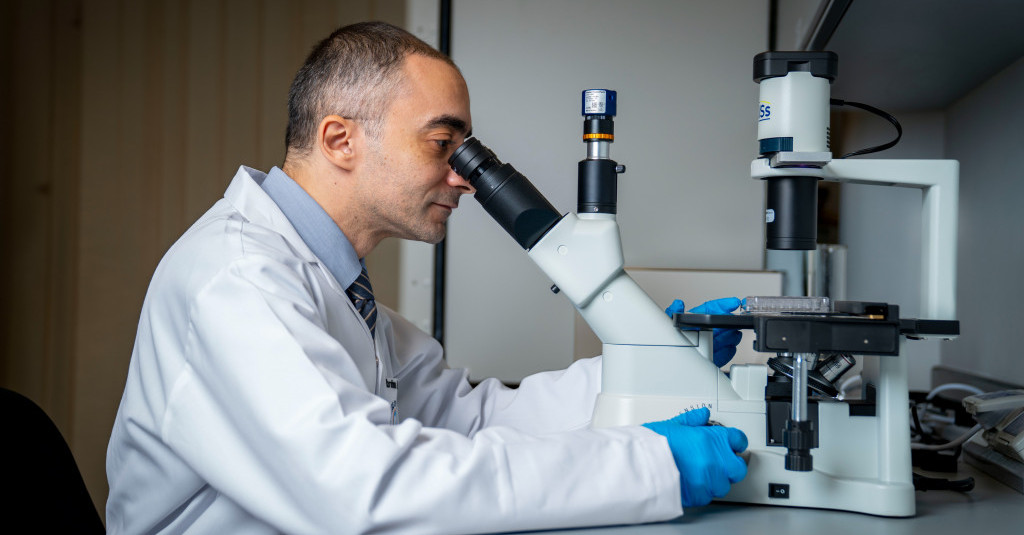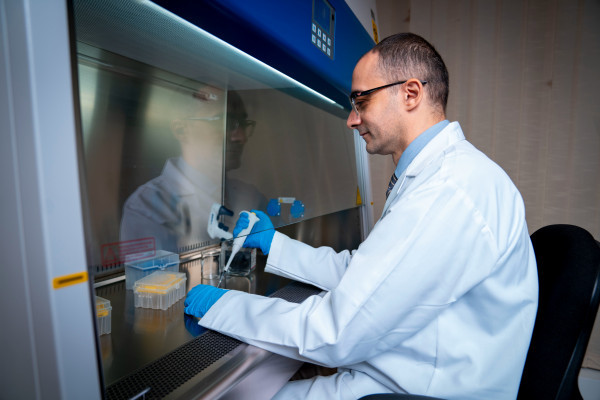Ajman University Medical Researcher Wins “Thumbay International Research Grant 2025” in the Field of Regenerative Medicine

Dr. Ibrahim El Serafi, Associate Professor and Head of Basic Medical Sciences Department at the College of Medicine, Ajman University, has been awarded the Thumbay International Research Grant 2025 to fund his research project titled: “The role of Vorinostat and CID1067700 in skin regeneration and wound healing”. The project focuses on testing the effects of these two drug compounds on stem cells to determine their ability to stimulate differentiation into keratinocytes, cells responsible for forming the skin. Through this research, the investigator aims to contribute to developing effective and innovative therapeutic solutions for chronic wounds.
The project objectives include testing the effects of Vorinostat and CID1067700 on the in vitro differentiation of stem cells into keratinocyte-like cells, examining their potential genotoxic effects during the differentiation process, evaluating the most effective treatment using a skin wound model in Sprague Dawley rats, and analyzing the toxicity and side effects of the treatment on the animal model.
Promising Medical and Societal Impact
Chronic wounds—particularly those resulting from diabetes, burns, or venous insufficiency—pose major global healthcare challenges, often leading to serious complications such as infections, amputations, and reduced quality of life. This project aims to develop innovative therapeutic solutions by using epigenetic modifiers to enhance the differentiation of stem cells into keratinocytes, which may represent a breakthrough in wound healing treatments.
The research also includes the development of patient-specific skin grafts and a topical treatment that could serve as a safe, effective, and accessible alternative for individuals with non-healing wounds, reducing reliance on traditional skin grafting techniques, which often involve donor sites and may lead to further complications.
Advances in Personalized and Regenerative Medicine
This project opens new horizons for advanced clinical applications, including developing autologous skin grafts that reduce the risk of immune rejection, and formulating a topical drug containing Vorinostat or CID1067700 as a non-surgical treatment for chronic wounds.
If these treatments prove effective in clinical trials, they may be integrated into standard medical care protocols for patients suffering from wounds caused by diabetes, burns, venous insufficiency, or trauma-related skin injuries.
The project also represents a pioneering step in regenerative medicine through the use of epigenetic modifiers in skin regeneration. It enhances scientific understanding of the molecular mechanisms involved in wound healing and is expected to lead to wider clinical trials in collaboration with Gulf Medical University, Ajman University, and Linköping University in Sweden, accelerating regulatory approval and the practical application of these innovations in healthcare systems.
This achievement reflects Ajman University’s commitment to supporting scientific research and innovation as a non-profit educational institution. The University provides a fully integrated research environment and actively encourages faculty to pursue projects with meaningful scientific and societal impact. It also strives to strengthen research partnerships with leading local and international institutions to develop advanced solutions that address health and societal challenges. It reinforces its position as a leading academic and research center in the region, which aligns with its vision for knowledge investment, sustainable development, and community service.
